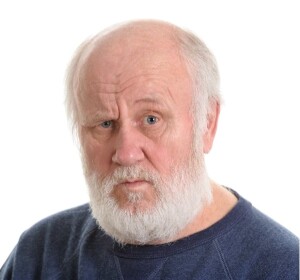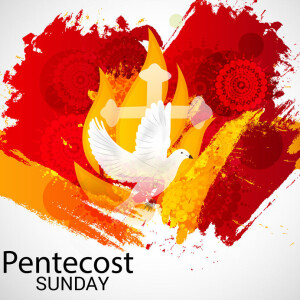A letter to the brave woman who washed Jesus’ feet with her tears
“A Pharisee invited him to dine with him, and he entered the Pharisee’s house and reclined at table. Now there was a sinful woman in the city who learned that he was at table in the house of the Pharisee. Bringing an alabaster flask of ointment, she stood behind him at his feet weeping and began to bathe his feet with her tears. Then she wiped them with her hair, kissed them, and anointed them with the ointment.” Luke 7:36-38
Dear Brave Woman,
I have read your story repeatedly, over many years, and I continue to be amazed by your actions. You knew that you were not welcome in the house of Simon the Pharisee. You knew what he thought of you, that you were “human trash,” and not worthy to step into his home. In fact, you believed these things about yourself as well. You internalized the judgments of proper society and agreed with their judgment: that you were a “sinful woman.” Yet, you did something absurd. You crashed a dinner party without considering the consequences, because you were sure that there was one person present, Jesus, who would not reject you. You knew that he would not misunderstand your actions.
How did you know this? You had not met him before. How had you come to know that Jesus would receive your tears and tender touches with compassion and humility?
I am assuming from the story that you lived a life of hurt and sorrow inflicted by the hands of men. Childhood physical and sexual abuse are epidemic in my century. Was it the same in yours? Did you suffer trauma at an early age and then never knew how to feel safe and secure in the world? Did you act out, seeking security and love in the only way you knew: by offering yourself to men? You fell into the trap of being trafficked for the sexual pleasure of men. That’s what the Scriptures imply with your description as “a sinful woman.” You were trapped between the misuse and abuse from men of the world and the scorn and judgment from men of faith.
 But in Jesus you found someone different. Somehow, as you learned about him, as you learned from others how he interacted with tax collectors, prostitutes, and other public sinners, you understood that he came as a friend, not as a judge.
But in Jesus you found someone different. Somehow, as you learned about him, as you learned from others how he interacted with tax collectors, prostitutes, and other public sinners, you understood that he came as a friend, not as a judge.
However you came to know about Jesus, you grasped his radical message. Before you ever met him, you came to understand that God didn’t hate sinners. In fact, the opposite was true: God fully understands the pain and suffering that is so often behind a person’s self-destructive behavior. God comes to the sinner with infinite mercy and forgiveness. You followed Jesus from a distance, and his words melted your heart, melted your self-judgment, and revealed to you your deepest truth: that you are God’s beloved daughter! And nothing you have done, no sin, no self-condemnation, no self-harm, no addiction, can change that. Jesus brought to you the infinite love and mercy of God, and you were overwhelmed with gratitude.
When you learned that he was at the house of Simon the Pharisee, you could not help yourself. Your gratitude for what Jesus had done for you burst forth in tears that washed his feet and kisses that covered them with love. You did what few people ever did: you surprised Jesus, and he was amazed at your extravagant display of affection. When he spoke to Simon, he compared Simon’s lack of hospitality with your generosity:
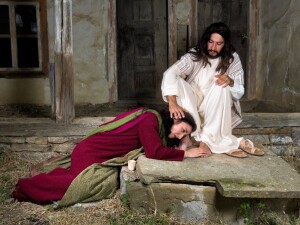 “Do you see this woman? When I entered your house, you did not give me water for my feet, but she has bathed them with her tears and wiped them with her hair. You did not give me a kiss, but she has not ceased kissing my feet since the time I entered. You did not anoint my head with oil, but she anointed my feet with ointment. So I tell you, her many sins have been forgiven; hence, she has shown great love. But the one to whom little is forgiven, loves little.” Luke 7:44-47
“Do you see this woman? When I entered your house, you did not give me water for my feet, but she has bathed them with her tears and wiped them with her hair. You did not give me a kiss, but she has not ceased kissing my feet since the time I entered. You did not anoint my head with oil, but she anointed my feet with ointment. So I tell you, her many sins have been forgiven; hence, she has shown great love. But the one to whom little is forgiven, loves little.” Luke 7:44-47
I do not know your name, but I ask you, Brave Woman, to pray for me that I can be like you and allow the forgiveness of God to free me so that I, too, can shower Jesus and others, with “great love.”
Sincerely,
A sinner struggling to be a saint
Homespun Homily by Lori: The Grace of Listening
By Lori Fontana
Who listens to you? I mean, really listens. Who gives you total attention as you speak, letting you pause to gather your thoughts or search for just the right word to express what is rattling around in your head or flowing from your heart? If you have such a person in your life, an attentive listener, you, indeed, have a great gift.
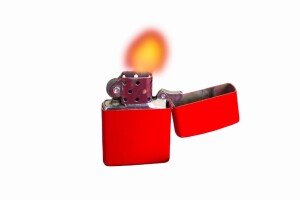 Here’s a true story. An older couple we knew many years ago were empty-nesters. Their daily routine included sitting down together for every meal. However, whereas the wife was talkative and brimming with conversation, the husband wanted to read the newspaper in silence. The wife was miffed and tried for months to get the husband’s attention and participation without success. One morning at breakfast, when she could stand her husband’s lack of engagement no longer, she leaned over and, with a small lighter, lit his newspaper on fire.
Here’s a true story. An older couple we knew many years ago were empty-nesters. Their daily routine included sitting down together for every meal. However, whereas the wife was talkative and brimming with conversation, the husband wanted to read the newspaper in silence. The wife was miffed and tried for months to get the husband’s attention and participation without success. One morning at breakfast, when she could stand her husband’s lack of engagement no longer, she leaned over and, with a small lighter, lit his newspaper on fire.
“That sure got his attention!” she told us later.
Let’s hope none of us needs to resort to pyrotechnics to get our friend’s or loved one’s attention. But I think each of us, at some time, has felt a longing for connection with another, to be acknowledged and truly heard.
Deep, loving listening may be one of the most precious gifts one person can give to another. When a listener is totally present, showing great interest, how does the speaker respond? She or he will feel confident to share what is most important and dearest to the heart.
One might ask, “What’s so complicated about listening? Just keep quiet, nod your head, grunt in assent now and then – it’s simple.” But in truth, real listening is hard. Much of the time, we put little conscious effort into listening to another. Listening well is very much an art.
 As Kay Lindahl says in her book, The Sacred Art of Listening: Forty Reflections for Cultivating a Spiritual Practice, “Listening well takes time, skill, and a readiness to slow down, to let go of expectations, judgments, boredom, self-assertiveness, defensiveness.” It is a skill that takes practice. It takes patience. It requires the listener to really want to give to another this gift.
As Kay Lindahl says in her book, The Sacred Art of Listening: Forty Reflections for Cultivating a Spiritual Practice, “Listening well takes time, skill, and a readiness to slow down, to let go of expectations, judgments, boredom, self-assertiveness, defensiveness.” It is a skill that takes practice. It takes patience. It requires the listener to really want to give to another this gift.
Lindahl offers three practices that contribute to authentic listening: silence, reflection, and presence. It’s easy to understand how “silence” is a necessary quality for being a good listener. If I’m always offering “my two-cents worth” in a conversation, I don’t leave much room for the other to speak.
“Reflection” slows the conversation, allowing both speaker and listener to pause and ponder. Lindahl recommends that the listener take some deep calming breaths to help one reflect on what was said and then, perhaps, how to respond. In those moments of reflection, the speaker’s words have a chance to sink in, and the listener has time to understand.
“Reflection” bolsters the third characteristic of good listening: “presence.” Brother Lawrence, a 17th-century monk, spent his religious life doing monastery chores, mostly kitchen work. But what he is known for is how, in the smallest and most mundane tasks, he “practiced the presence of God.” Whether he was washing dishes or sweeping, cooking or scrubbing, he was totally present to that task; and he recognized God’s presence in the task. God called him to this work of his hands, so Brother Lawrence embraced each task wholeheartedly and found God amidst the dirty pots and potato peelings: “And it is not necessary to have great things to do. I turn my little omelet in the pan for the love of God.”
It’s sometimes difficult to be present to another. Their story may be long or tedious, or we’ve heard it all before, many times. When we practice being fully present in the many ordinary activities of our life, as did Brother Lawrence, then we grow in our ability to be present to another who is sharing from the heart. When I make the bed, make the bed; when I wash my hands, be present to that. This is good practice for listening with “presence.”
In many situations, listening to another these days has become fraught with anxiety, fear, even anger. As Valarie Kaur says in her book, See No Stranger: A Memoir and Manifesto of Revolutionary Love, (pp 143-144, 156, 157),
It turns out it is extremely difficult to draw close to someone you find absolutely abhorrent. How do we listen to someone when their beliefs are disgusting? Or enraging? Or terrifying? . . . In these moments, we can choose to remember that the goal of listening is not to feel empathy for our opponents, or validate their ideas, or even change their mind in the moment. Our goal is to understand them. . . .
Maybe, just maybe, my opponent will begin to wonder about me in return, ask me questions, and listen to my story. Maybe their views will start to break apart and new horizons will open in the process. . . . Then again, maybe not. It doesn’t matter as long as the primary goal of listening is to deepen my own understanding. Listening does not grant the other side legitimacy. It grants them humanity—and preserves our own.
 The Letter of James offers us a similar guide to listening: Know this, my brothers and sisters: everyone should be quick to hear, slow to speak, slow to anger… James 1:19
The Letter of James offers us a similar guide to listening: Know this, my brothers and sisters: everyone should be quick to hear, slow to speak, slow to anger… James 1:19
May each of us practice the presence of God, which in turn can help us see God present in everyone we meet. That is the foundation for loving listening, a gift we can offer to our contentious world.
Mother Petronilla, the Brown Scapular, and the Poison P’s!
By Robert Fontana
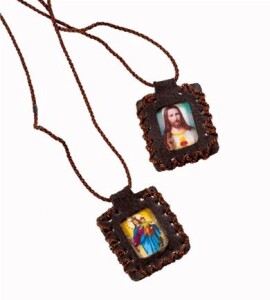 I’ve been thinking a lot about being raised Catholic at a time when Catholics knew how to practice their faith. We were good at it. We knew how to fast from meat on Fridays – ALL FRIDAYS, receive ashes in Lent, attend May crownings, pray the Stations of the Cross, make the Sign of the Cross while passing Catholic churches (not Protestant ones), bless our new homes, new babies, and, in Louisiana, the shrimp boats, with holy water.
I’ve been thinking a lot about being raised Catholic at a time when Catholics knew how to practice their faith. We were good at it. We knew how to fast from meat on Fridays – ALL FRIDAYS, receive ashes in Lent, attend May crownings, pray the Stations of the Cross, make the Sign of the Cross while passing Catholic churches (not Protestant ones), bless our new homes, new babies, and, in Louisiana, the shrimp boats, with holy water.
We did not necessarily understand Catholicism; it was all a mystery anyway, but we knew how to practice the religion of our ancestors, from the time we were very young. For example, when I was a child, probably at my first Communion, I was given a brown scapular, which was two pieces of cloth, each about an inch square, and decorated with an image of Mary. The two cloth squares were connected by cords and worn around the neck.
Wearing a scapular was serious business. The one spiritual truth I remember about it was that no person wearing one at the moment of his or her death could ever be sent to hell. Honest! One day, I had an intense conversation with my brother Francis, who is a year older than I. We were pondering how this was possible.
Francis – I never take my scapular off. NEVER!
Robert – You mean you even take a bath with it? Ain’t that a sin, I mean getting a holy scapular wet?
Francis – No, stupid, not with a scapular. If you drown in the tub, or a hurricane knocks a tree down on the house and smashes the bathroom with you in the tub, you want to be wearing the scapular. It’ll keep you out of hell when you die, so wear it even when you take a bath.
Robert – Wow!
I thought it was a sin to get a scapular wet, like it was a sin to chew the communion host. But a scapular’s having the power to save me from the torments of hell, that was something else. But I was confused about one thing.
Robert – What if you have a mortal sin on your soul? Will you still go to heaven if you die wearing the scapular?
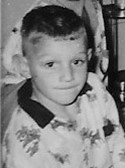 Francis paused. He was stumped. That was a theological issue that he had not considered, nor had it been explained by any of the Sisters of Mt. Carmel, who taught at our school, which we and every child in a 10-mile radius attended.
Francis paused. He was stumped. That was a theological issue that he had not considered, nor had it been explained by any of the Sisters of Mt. Carmel, who taught at our school, which we and every child in a 10-mile radius attended.
Francis – I don’t know what happens then. Maybe it just falls off if you are dying and have a mortal sin on your soul. Mother Petronilla did say that we have to be good when we wear the scapular (she was our first-grade teacher).
As I said, we Catholics were pretty good at practicing our religion even though we did not fully understand why we were doing what we were doing. That may have worked in the 40’s, 50’s, and 60’s, when Catholic culture was intact, and the most important issue was keeping immigrant Catholics from becoming Protestant, but it will not work today. The world has changed. The fundamental challenge to Catholic Christianity is not Protestantism, even in its evangelical variety. These Christians are our allies. The challenge is greed and selfishness that have run amok as men and women of all ages pursue what Franciscan Father Richard Rohr calls the “Poison P’s – Position, Power, Possessions,” and Privilege (I’ve added this last one) made possible by money.
![]() POSITION, POWER, POSSESSIONS, AND PRIVILEGE suck the life from one’s soul and leave one looking like what Jesus described as “white-washed tombs on the outside, but dead-men’s bones on the inside.” (Mt 23:27)
POSITION, POWER, POSSESSIONS, AND PRIVILEGE suck the life from one’s soul and leave one looking like what Jesus described as “white-washed tombs on the outside, but dead-men’s bones on the inside.” (Mt 23:27)
POSITION, POWER, POSSESSIONS, AND PRIVILEGE blind entire communities to the needs of the unborn and the poor, to the desecration of the earth, and to the demands of justice.
BUT REMEMBER THIS! We cannot avoid the Poison P’s. We are immersed in them because the pursuit of position, power, possessions, and privilege is a foundation of our American culture. They are the “water we drink, the air we breathe.” We cannot avoid them, BUT we can transform them!
Do not conform yourselves to this age but be transformed by the renewal of your mind, that you may discern what is the will of God, what is good and pleasing and perfect. Romans 12:2
Paul would have made a good psychotherapist. There is an axiom in the therapeutic world: “change the way you think, and you’ll change the way you feel, and you’ll change the way you act.”
What if your deepest identity was not defined by your position as a lawyer, teacher, cashier, or even priest? What if your deepest identity was that you are a beloved child of God? Then you would use your power to be a power for good in the world. You would acquire the possessions that you need and share them. And with any privilege you have, perhaps because of having parents who stayed lovingly married, or being very successful in business, you would build on that to help those who are underprivileged.
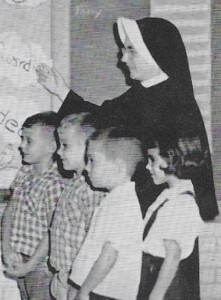 Whoever taught that wearing the scapular would save us from hell was treating that very nice symbol as magic. In the modern world, the “Poison P’s” are creating hell on earth. Being a practicing Catholic today means working to transform the “Poison P’s” however they are present in the circumstances of one’s life. They can be transformed – through faith, hope, and love. I think Mother Petronilla really knew the true purpose of a scapular: it was a very concrete reminder for us to be good.
Whoever taught that wearing the scapular would save us from hell was treating that very nice symbol as magic. In the modern world, the “Poison P’s” are creating hell on earth. Being a practicing Catholic today means working to transform the “Poison P’s” however they are present in the circumstances of one’s life. They can be transformed – through faith, hope, and love. I think Mother Petronilla really knew the true purpose of a scapular: it was a very concrete reminder for us to be good.
________________
Scapular photo used with permission: Copyright: <a href=’https://www.123rf.com/profile_echeverriurrealuis’>echeverriurrealuis</a>
Men of all ages, Straight or Gay, don’t walk to MROP, RUN!
 I recently made an amazing wilderness retreat for men developed by Fr. Richard Rohr, Franciscan priest and director of the Center for Action and Contemplation. The retreat is called Men’s Right of Passage (MROP). It was truly one of the most unique and wonderful events in which I have participated. I have been sending the following letter to male friends and family members to invite them to consider attending. (photo: Copyright: www.123rf.com/profile_kamchatka)
I recently made an amazing wilderness retreat for men developed by Fr. Richard Rohr, Franciscan priest and director of the Center for Action and Contemplation. The retreat is called Men’s Right of Passage (MROP). It was truly one of the most unique and wonderful events in which I have participated. I have been sending the following letter to male friends and family members to invite them to consider attending. (photo: Copyright: www.123rf.com/profile_kamchatka)
Dear Friends,
I’m writing to tell you about a five-day wilderness retreat I attended in the North Cascades called “Men’s Right of Passage (MROP).” The retreat was developed by Franciscan Father Richard Rohr. It is faith- oriented in that its reference point is from the monotheistic faith of Abraham whose God created all that is seen and unseen and who loves every human being as a beloved son or daughter. I have participated in outstanding events that have enriched my life and deepened my capacity to love God and neighbor. MROP is unlike anything I have ever done before. I won’t tell you much about it because I want you to attend it and don’t want to spoil any surprises. You can read about the retreat at this link: https://illuman.org/mrop/
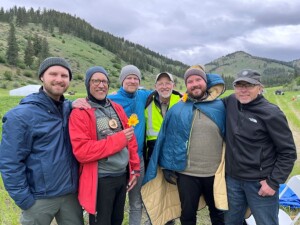 I will say this: MROP is held at different wilderness spots around the country. I attended one, 5 days, in the North Cascade Mountains backcountry, a place as beautiful and wild as any I’ve seen. The retreat’s purpose is to help men become healthy men, even with all the hurts and pains that life brings, and all the unhealthy behaviors that the culture’s toxic masculinity imposes. It had a perfect mixture of presentations, dramas, conversation in small groups, rituals, great food, campfires, rowdy singing, and lovely moments of quiet in nature.
I will say this: MROP is held at different wilderness spots around the country. I attended one, 5 days, in the North Cascade Mountains backcountry, a place as beautiful and wild as any I’ve seen. The retreat’s purpose is to help men become healthy men, even with all the hurts and pains that life brings, and all the unhealthy behaviors that the culture’s toxic masculinity imposes. It had a perfect mixture of presentations, dramas, conversation in small groups, rituals, great food, campfires, rowdy singing, and lovely moments of quiet in nature.
When I left the retreat on Sunday afternoon, I felt giddy with joy. I could hardly stop laughing and singing. I have not felt this alive, free, and content in a long, long time. This journey towards being a healthy man has been the trajectory that I have been on my entire adult life. MROP expanded that journey exponentially. You will find a schedule of upcoming MROP events at the above link. I urge you to find a date that works for you and set aside the time to attend.
Don’t walk to the next MROP; RUN TO IT!
If you have any questions or want to talk more about the retreat, let me know. I’m planting a seed, inviting you to consider participating in this life-transforming event. No matter how old you are, no matter your religious tradition or lack thereof, no matter your political persuasion – left, right, or in the middle – MROP can be the most healing, exhilarating, and meaningful event for men in which you will ever participate. Blessings! Robert
Good News/Bad News: The Vatican Responds to Yakima Investigation
Dear Friends, the investigation into our whistleblower complaint by the archbishop of Seattle is over. Here is a portion of a statement that I read to the investigator on October 8, 2020:
My experience has taught me a few things. #1. Sexual predators are here to stay. They are in our churches, families, schools, etc. We cannot filter them out. They will find a way to be with minors and vulnerable adults.
#2. The temptation to protect sexual predators is also here to stay. They will be our mentors whom we love, and we simply cannot believe the allegations made against us. Or, if we do, we will not want to ruin their careers over this one incident. Or, perhaps, they will be individuals like Cardinal McCarrick who have power to influence our careers; or, perhaps, they will know secrets on us that we do not want exposed.
# 3 Safe environment programs must equip Catholic employees, clergy and lay, and volunteers to address cover-up of sex abuse. Cover-up is the real culprit that turned a problem of offending clerics into an international scandal. Essential to equipping Catholic employees and volunteers in confronting cover-up in the church is the legal and emotional protection of whistle-blowers. Without that public commitment why would anyone speak out?
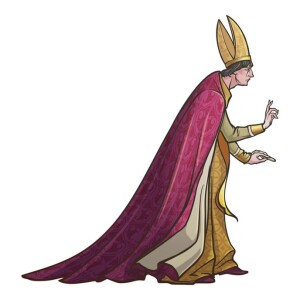 Review: 8/1/19 – The CLM Board wrote Archbishops Sartain and Etienne to investigate Robert’s role as a whistleblower regarding the mishandling and cover-up of cases of clergy sex abuse by the Bishop of Yakima. Archbishop Sartain wrote a letter in response, dismissing the board’s concern.
Review: 8/1/19 – The CLM Board wrote Archbishops Sartain and Etienne to investigate Robert’s role as a whistleblower regarding the mishandling and cover-up of cases of clergy sex abuse by the Bishop of Yakima. Archbishop Sartain wrote a letter in response, dismissing the board’s concern.
8/28/19 – Robert wrote Archbishop Etienne (who replaced Archbishop Sartain) outlining his history of trying to expose the mishandling and cover-up of sex abuse in the Dioceses of Yakima and Seattle, and included evidence of retaliation.
11/15/19 – Archbishop Etienne wrote a response to Robert’s letter, stating that he was taking my concerns seriously and seeking consultation on his response.
2020 – Unbeknownst to us, the Archbishop initiated an investigation. He hired an investigator from Alaska, someone not known in Seattle or Yakima and therefore more likely viewed as being independent, to review documents and interview witnesses.
Oct 2020 – Robert was interviewed for almost two hours and provided the investigator with documents that he did not have and with names of witnesses with whom he had not yet spoken. Frank Murray of Yakima was also interviewed.
5/23/22 – I was asked to meet with the Archbishop and was told that I had to come alone, I could not take notes, and I could not see any documentation. At the meeting the Archbishop informed me that Pope Francis had been presented with the case and had then instructed the head of a congregation to issue a reprimand to Bishop Sevilla in accordance with Canon 1339 for causing “harm and scandal.” THAT’S THE GOOD NEWS!
The bad news is that this reprimand is private. That means neither the Pope, the Archbishop of Seattle, nor the Bishop of Yakima is going to tell anyone. I wrote the Archbishop a letter to thank him for taking our complaint seriously and initiating the investigation. Then I wrote this: The private nature of the Vatican’s reprimand of Bishop Sevilla leaves me and Frank Murray in the position of being whistleblowers once again…the issues which prompted our writing you in the first place remain unaddressed: Frank Murray and I have not been vindicated by Church leaders. Clergy and lay employees, and volunteers have yet to be assured that their jobs and reputations will be protected if they speak out and expose any behavior that suggests the possible abuse of minors or vulnerable adults and/or that such behavior is being covered-up. These issues, unaddressed, can also cause “harm and scandal” to the Church and continue the risks to youth and vulnerable adults.
Father’s Day, Men and Billy Goats
By Robert Fontana
 Father’s Day is approaching, and my thoughts turn to women who make it possible for men to be fathers, but more than that, to wives and partners who keep men from becoming like billy goats. Mattie Ross of True Grit fame -—she’s the young 14-year-old that hires Rooster Cogburn to go after Tom Chaney, her father’s murderer—- states what is common knowledge in fiction and non-fiction alike:
Father’s Day is approaching, and my thoughts turn to women who make it possible for men to be fathers, but more than that, to wives and partners who keep men from becoming like billy goats. Mattie Ross of True Grit fame -—she’s the young 14-year-old that hires Rooster Cogburn to go after Tom Chaney, her father’s murderer—- states what is common knowledge in fiction and non-fiction alike:
“Men will live like billy goats if they are left alone.”
When I read this, I decided to study up on billy goats to be sure I understood Mattie’s meaning. And I must say, after thorough and exhausting research, I’ve concluded that Mattie insulted billy goats. They are very intelligent creatures and left to themselves –- and let’s be honest here, we are referring to male goats; female goats are referred to as does or nannies –- billie goats, for the most part, make intelligent choices. Men, okay, let’s not generalize, many men, “left alone,” live like Rooster Cogburn, in their own filth.
“He stirred as I came through the curtain. His weight was such that the bunk was bowed in the middle almost to the floor. It looked like he was in a hammock. He was fully clothed under the covers… Rooster coughed and spit on the floor and rolled a cigarette and lit it and coughed some more… little brown drops of coffee clung to his mustache like dew. Men will live like billy goats if left alone.”
I was raised with eight men, six brothers and my dad. I shudder to think what our home would have looked like without Mom. One of my brothers, I won’t mention any names, told me that when he went off to college, he loved getting his bed sheets so coated with body oils from lack of washing that he could slide into bed.
Certainly Dad would have enforced some sort of hygiene requirements on his sons, and I know one particular brother would have helped him out, but the others of us, even as grown men, would have been Rooster Cogburn disciples.
God most surely knew this about men when he created Adam out of mud. Very quickly afterwards, according to the Bible, the Lord God says, “It is not good for the man to be alone. I will make him a suitable partner.”
What the Bible does not say is that Rooster Cogburn is a direct descendent of Adam and, according to Catholic teaching of original sin, inherited his lower-than-billy goat predisposition from the first man.
 Adam had basically trashed the garden with banana peels and discarded beer jugs spread about and had started to show signs of poor health from smoking the tobacco leaf. Eve was a godsend to Adam. He perked up, trimmed his beard, and began mulching all parts of the vegetarian diet he (and she) could not eat.
Adam had basically trashed the garden with banana peels and discarded beer jugs spread about and had started to show signs of poor health from smoking the tobacco leaf. Eve was a godsend to Adam. He perked up, trimmed his beard, and began mulching all parts of the vegetarian diet he (and she) could not eat.
Okay, sure she tricked him with that apple, but women aren’t perfect either. As we approach Father’s Day, the point is that the mothers of their children play a vital role in helping men to be good fathers! In fact, although there are exceptions to this axiom that I’m about to pronounce, the truth is: what makes good and involved fathers is a strong marriage with the mother of their children.
My dad was a great dad. He taught me how to ride a bike, throw a baseball, cast a fishing line, love music, and pray. But the best and most amazing gift he gave to me was his love for my mother. Together they created a stable (but not perfect, by any means) family, filled with all the fun and craziness of family life. Dad loved Mom in good times and in bad, and passed that lesson on to me and my brothers.
There is a segment of the male population that is behaving like Rooster Cogburn. We could ignore them but they are fathering children and acting worse than billy goats in taking care of them. The real crisis, however, is not that they are absent fathers, but that they are absent spouses. Do you want to be a great dad? Be a great spouse. Yes, be involved with your children, but most importantly, LOVE THEIR MOTHER! Happy Father’s Day.
Above photo: Copyright: <a href=’https://www.123rf.com/profile_gstockstudio’>gstockstudio</a>
Chicken Little and the Neighborhood Pop-up Kitchen
Back in our college days, our parish pastor told us a parable. Chicken Little lay on her back in the road, her spindly little legs sticking straight up towards the sky. Noble Knight, clothed in shining armor, with his lance and shield gleaming in the sunlight, came riding by on his huge steed. He stopped next to Chicken Little, bending over to speak to her.
“Why lie-est thus in the dust, little chick?” questioned the Knight.
Chicken Little responded, “The sky is falling; the sky is falling!”
“And thou think-est thou can help thusly – by holding thy measly little chicken legs in the air?!?” scoffed the Knight.
“One does what one can,” the chick replied confidently.
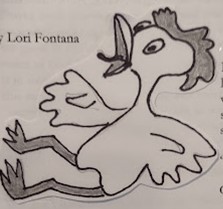 In these crazy days of horrific gun violence, deep discord and mistrust, runaway inflation with gas at $6 a gallon and sky-high grocery and housing prices; a war in Ukraine; strife in our neighborhoods; hunger, danger, the pandemic – YIKES! How are we supposed to manage, to cope? How do we as Christians not just survive but thrive? How do we claim the JOY of God’s love, which we know is at the very core of our existence and is also present in every human being and in all of creation?
In these crazy days of horrific gun violence, deep discord and mistrust, runaway inflation with gas at $6 a gallon and sky-high grocery and housing prices; a war in Ukraine; strife in our neighborhoods; hunger, danger, the pandemic – YIKES! How are we supposed to manage, to cope? How do we as Christians not just survive but thrive? How do we claim the JOY of God’s love, which we know is at the very core of our existence and is also present in every human being and in all of creation?
Day-to-day routines will look different in the life of each person of faith; but I offer two suggestions to buoy and sustain our Christian walk: prayer and service.
Prayer is, of course, a no-brainer. Prayer is “communication with our God,” the Trinity of divine persons who love us completely and unconditionally. We can hardly claim to be a Christian without having a practice of daily prayer wherein we communicate heart to heart with God, in whatever manner nourishes and encourages us. It could be silent reflection, the community prayer of Mass, spiritual reading, prayer walking, prayer groups, meditative song or rosary / chant, prayer of the imagination, music, art…the ways we pray are as numerous as there are Christians. Without prayer, we cannot connect to God; and our souls will wither and die within. Prayer is the most basic of self-care routines. It builds the foundation upon which the rest of our life is built.
This leads to my second suggestion: service to others. Prayer, both personal and communal (such as the Mass) nourishes and guides us for a purpose – to be a power for good in the world, to be the hands and feet, heart and voice of God in a world which, as we daily see and hear, is in desperate need of God’s love and care. What does this service look like? Well, first and foremost is our “service” to our family and our job, as we fulfill the daily duties of our primary vocation, be it as a married person, a single person, or a vowed religious person. Beyond these primary responsibilities, I’d say the sky’s the limit on what individuals might do to serve others.
We don’t have to look far to notice “needs.” They are in our neighborhood, our section of the city, our country, all around our world. A practical starting point is, what’s needed right now, within our own families and the circumstances of our own daily lives? Ask yourself, what needs do I see? What gifts can I offer?
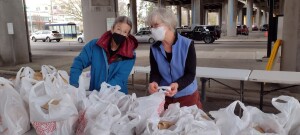 Here’s an example from my life. Some folks in our neighborhood have joined together to provide food every Sunday afternoon, under the nearby freeway, for anyone who comes. About four years ago, some of the neighbors noticed folks living outside, including under the freeway, and decided to cook a hot meal which they served on folding tables they set up near where folks were camping. They call it the Ravenna Pop-Up Kitchen. During the pandemic, this has become a cold meal, wrapped for take-away. Other small items are offered: socks and underwear, towels, masks, hand sanitizer. In the winter cold, some organizers made hot chocolate and coffee to help warm the folks who came. About 200 people in our neighborhood are part of the email info thread. Between providing the food and distributing it on site, a dozen people directly participate each week. Folks help when they can and donate food and other items.
Here’s an example from my life. Some folks in our neighborhood have joined together to provide food every Sunday afternoon, under the nearby freeway, for anyone who comes. About four years ago, some of the neighbors noticed folks living outside, including under the freeway, and decided to cook a hot meal which they served on folding tables they set up near where folks were camping. They call it the Ravenna Pop-Up Kitchen. During the pandemic, this has become a cold meal, wrapped for take-away. Other small items are offered: socks and underwear, towels, masks, hand sanitizer. In the winter cold, some organizers made hot chocolate and coffee to help warm the folks who came. About 200 people in our neighborhood are part of the email info thread. Between providing the food and distributing it on site, a dozen people directly participate each week. Folks help when they can and donate food and other items.
It involves planning and coordination. It’s a commitment, particularly for the group leaders, who will pick up the slack when other volunteers are lacking. But the group has provided a Sunday meal faithfully for more than 4 years and counting.
The group serves about 25 – 35 meals each week and is so appreciated by the folks that come. Several people come every week and even hang around for a visit while enjoying a cup of hot chocolate. Robert and I, plus our daughter Mary, volunteer 1 – 2 times a month to prepare some food, set up tables, or distribute the meals on-site.
Our efforts seem very much like Chicken Little’s effort to prop up the sky with her tiny legs. Homelessness and hunger are such HUGE problems in Seattle. What can a few people possibly do that will make any difference? We can’t do everything! But, on the other hand, if each of us does what we CAN do, things can get better. We spread the Good News.
One more parable: A little boy walked along the seashore picking up starfish stranded on the sand and tossing them gently back into the water. An old man watching him said, “You can’t possibly return all the starfish to the sea. Why do you even try? What difference can you make?”
As the boy carefully put another starfish into the ocean, he responded, “Well, I make a difference to this one!”
One does what one can! You and I can be the hands and heart of Jesus in the world. Even if in a small way, we can bring the grace and blessing of the Holy Spirit to each person we meet.
Back in our college days, our parish pastor told us a parable. Chicken Little lay on her back in the road, her spindly little legs sticking straight up towards the sky. Noble Knight, clothed in shining armor, with his lance and shield gleaming in the sunlight, came riding by on his huge steed. He stopped next to Chicken Little, bending over to speak to her.
“Why lie-est thus in the dust, little chick?” questioned the Knight.
Chicken Little responded, “The sky is falling; the sky is falling!”
“And thou think-est thou can help thusly – by holding thy measly little chicken legs in the air?!?” scoffed the Knight.
“One does what one can,” the chick replied confidently.
In these crazy days of horrific gun violence, deep discord and mistrust, runaway inflation with gas at $6 a gallon and sky-high grocery and housing prices; a war in Ukraine; strife in our neighborhoods; hunger, danger, the pandemic – YIKES! How are we supposed to manage, to cope? How do we as Christians not just survive but thrive? How do we claim the JOY of God’s love, which we know is at the very core of our existence and is also present in every human being and in all of creation?
Day-to-day routines will look different in the life of each person of faith; but I offer two suggestions to buoy and sustain our Christian walk: prayer and service.
![]() Prayer is, of course, a no-brainer. Prayer is “communication with our God,” the Trinity of divine persons who love us completely and unconditionally. We can hardly claim to be a Christian without having a practice of daily prayer wherein we communicate heart to heart with God, in whatever manner nourishes and encourages us. It could be silent reflection, the community prayer of Mass, spiritual reading, prayer walking, prayer groups, meditative song or rosary / chant, prayer of the imagination, music, art…the ways we pray are as numerous as there are Christians. Without prayer, we cannot connect to God; and our souls will wither and die within. Prayer is the most basic of self-care routines. It builds the foundation upon which the rest of our life is built.
Prayer is, of course, a no-brainer. Prayer is “communication with our God,” the Trinity of divine persons who love us completely and unconditionally. We can hardly claim to be a Christian without having a practice of daily prayer wherein we communicate heart to heart with God, in whatever manner nourishes and encourages us. It could be silent reflection, the community prayer of Mass, spiritual reading, prayer walking, prayer groups, meditative song or rosary / chant, prayer of the imagination, music, art…the ways we pray are as numerous as there are Christians. Without prayer, we cannot connect to God; and our souls will wither and die within. Prayer is the most basic of self-care routines. It builds the foundation upon which the rest of our life is built.
This leads to my second suggestion: service to others. Prayer, both personal and communal (such as the Mass) nourishes and guides us for a purpose – to be a power for good in the world, to be the hands and feet, heart and voice of God in a world which, as we daily see and hear, is in desperate need of God’s love and care. What does this service look like? Well, first and foremost is our “service” to our family and our job, as we fulfill the daily duties of our primary vocation, be it as a married person, a single person, or a vowed religious person. Beyond these primary responsibilities, I’d say the sky’s the limit on what individuals might do to serve others.
We don’t have to look far to notice “needs.” They are in our neighborhood, our section of the city, our country, all around our world. A practical starting point is, what’s needed right now, within our own families and the circumstances of our own daily lives? Ask yourself, what needs do I see? What gifts can I offer?
 Here’s an example from my life. Some folks in our neighborhood have joined together to provide food every Sunday afternoon, under the nearby freeway, for anyone who comes. About four years ago, some of the neighbors noticed folks living outside, including under the freeway, and decided to cook a hot meal which they served on folding tables they set up near where folks were camping. They call it the Ravenna Pop-Up Kitchen. During the pandemic, this has become a cold meal, wrapped for take-away. Other small items are offered: socks and underwear, towels, masks, hand sanitizer. In the winter cold, some organizers made hot chocolate and coffee to help warm the folks who came. About 200 people in our neighborhood are part of the email info thread. Between providing the food and distributing it on site, a dozen people directly participate each week. Folks help when they can and donate food and other items.
Here’s an example from my life. Some folks in our neighborhood have joined together to provide food every Sunday afternoon, under the nearby freeway, for anyone who comes. About four years ago, some of the neighbors noticed folks living outside, including under the freeway, and decided to cook a hot meal which they served on folding tables they set up near where folks were camping. They call it the Ravenna Pop-Up Kitchen. During the pandemic, this has become a cold meal, wrapped for take-away. Other small items are offered: socks and underwear, towels, masks, hand sanitizer. In the winter cold, some organizers made hot chocolate and coffee to help warm the folks who came. About 200 people in our neighborhood are part of the email info thread. Between providing the food and distributing it on site, a dozen people directly participate each week. Folks help when they can and donate food and other items.
It involves planning and coordination. It’s a commitment, particularly for the group leaders, who will pick up the slack when other volunteers are lacking. But the group has provided a Sunday meal faithfully for more than 4 years and counting.
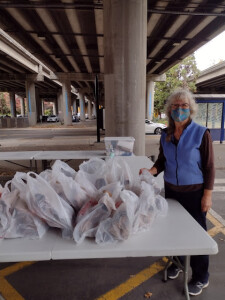 The group serves about 25 – 35 meals each week and is so appreciated by the folks that come. Several people come every week and even hang around for a visit while enjoying a cup of hot chocolate. Robert and I, plus our daughter Mary, volunteer 1 – 2 times a month to prepare some food, set up tables, or distribute the meals on-site.
The group serves about 25 – 35 meals each week and is so appreciated by the folks that come. Several people come every week and even hang around for a visit while enjoying a cup of hot chocolate. Robert and I, plus our daughter Mary, volunteer 1 – 2 times a month to prepare some food, set up tables, or distribute the meals on-site.
Our efforts seem very much like Chicken Little’s effort to prop up the sky with her tiny legs. Homelessness and hunger are such HUGE problems in Seattle. What can a few people possibly do that will make any difference? We can’t do everything! But, on the other hand, if each of us does what we CAN do, things can get better. We spread the Good News.
One more parable:
A little boy walked along the seashore picking up starfish stranded on the sand and tossing them gently back into the water. An old man watching him said, “You can’t possibly return all the starfish to the sea. Why do you even try? What difference can you make?”
As the boy carefully put another starfish into the ocean, he responded, “Well, I make a difference to this one!”
One does what one can! You and I can be the hands and heart of Jesus in the world. Even if in a small way, we can bring the grace and blessing of the Holy Spirit to each person we meet.
Pentecost 2020: Holy Spirit, be in my head and in my heart, be in my…
What a year of sorrow! The pandemic continues, war in the Ukraine, mass shootings at supermarkets and grade schools, divisions in the country, and the daily pains and sorrows of life. And still Paul writes:
“What will separate us from the love of Christ? Will anguish, or distress, or persecution, or famine, or nakedness, or peril, or the sword?…No, in all these things we conquer overwhelmingly through him who loved us. For I am convinced that neither death, nor life, nor angels, nor principalities, nor present things,* nor future things, nor powers, nor height, nor depth, nor any other creature will be able to separate us from the love of God in Christ Jesus our Lord.” Romans 8:35-38
We can find joy, hope, and purpose in this world filled with so much sin, corruption, and sorrow through an intimate relationship with Jesus and the Holy Spirit! Lori and I pray to the Holy Spirit every day to help us be alert to how we can be a power for good within the circumstances of our lives. Here is our Holy Spirit prayer:
Holy Spirit, be in my head and in my heart. Be in my eyes and in my looking. Be in my mouth and in my speaking. Be in my ears and in my hearing. Be in my hands and in my working this day and always!
Here’s a link to a wonderful article on the Holy Spirit: https://thevalueofsparrows.wordpress.com/2016/05/19/holy-spirit-how-to-envision-the-spirit-by-elizabeth-a-johnson/
Pandemic, War in Ukraine, Drug Abuse, Refugees, and EASTER!
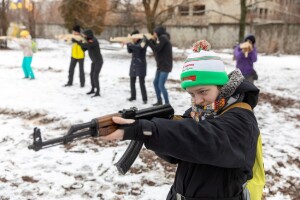 If you are suffering through any of these horrors or others that are painful and frightening, you might think that Jesus, the Kingdom of God, and Easter are not meant for you. You are living your Garden of Gethsemane, your Good Friday…and resurrected life and spirit-filled existence are a distant dream. But you would be mistaken! Because Easter and Pentecost happened over 2,000 years ago at a time quite similar to ours. Ordinary Jews, women and men of faith and their children, encountered the risen Jesus amid the terrors of Roman rule, the corruption of the religious elite and the wealthy, the ravages of disease and sickness, and the daily grind of work and struggle to make ends meet.
If you are suffering through any of these horrors or others that are painful and frightening, you might think that Jesus, the Kingdom of God, and Easter are not meant for you. You are living your Garden of Gethsemane, your Good Friday…and resurrected life and spirit-filled existence are a distant dream. But you would be mistaken! Because Easter and Pentecost happened over 2,000 years ago at a time quite similar to ours. Ordinary Jews, women and men of faith and their children, encountered the risen Jesus amid the terrors of Roman rule, the corruption of the religious elite and the wealthy, the ravages of disease and sickness, and the daily grind of work and struggle to make ends meet.
The Risen Jesus did not transform their circumstances, but he did change their hearts, helping them to live with hope in the midst of evil, corruption, sickness, and the demands of daily life. The Risen Jesus empowered them to make a difference within the circumstances of their lives, to be a power for good! The risen Jesus can do the same for you and me. This month we share with you the Stations of the Resurrection, a spiritual exercise designed to help you meet the risen Jesus as the did disciples. May Jesus reveal to you how deeply you are loved by God, and how you, too, can be a power for good within the circumstances of your life, however difficult those circumstances might be.
Easter JOY!
Robert & Lori
Stations of the Resurrection
Introduction: We walk the “Stations of the Resurrection” to remind us that Jesus, the Risen One, who revealed Himself to the disciples over two thousand years ago, is seeking to encounter us now within the ups and downs, joys and sorrows of our lives. Jesus will show Himself to any heart that will welcome Him, even a heart filled with doubt.
Station 1: Jesus Is Placed in a Tomb
L – We adore you, O Christ, and we love you.
All – Because by your death and resurrection you have set us free.
Joseph of Arimathea…went to Pilate and asked for the body of Jesus…he took him down, wrapped him in the linen cloth and laid him in a tomb that had been hewn out of the rock. Then he rolled a stone against the entrance to the tomb. Mary Magdalene and Mary the mother of Joses watched where he was laid. Mk 15:43-47
Response: Alleluia! Alleluia! Alleluia!
St. Therese, the Little Flower
L – We adore you, O Christ, and we love you.
All – Because by your death and resurrection you have set us free.
The women who had come from Galilee with him followed behind, and when they had seen the tomb and the way in which his body was laid in it, they returned and prepared spices and perfumed oils. Then they rested on the Sabbath according to the commandment. But at daybreak on the first day of the week they took the spices they had prepared and went to the tomb. They found the stone rolled away from the tomb; but when they entered, they did not find the body of the Lord Jesus. Luke 23:55-24:3
Response: Alleluia! Alleluia! Alleluia!
From the Saints: O living flame of love that tenderly wounds my soul in its deepest center… How gently and lovingly you wake in my heart, where in secret you dwell alone; and in your sweet breathing, filled with good and glory, how tenderly you swell my heart with love. St. John of the Cross
Station 3: Peter and the Empty Tomb
L – We adore you, O Christ, and we love you.
All – Because by your death and resurrection you have set us free.
The women were Mary Magdalene, Joanna, and Mary the mother of James; the others who accompanied them also told this to the apostles, but their story seemed like nonsense and they did not believe them. But Peter got up and ran to the tomb, bent down, and saw the burial cloths alone; then he went home amazed at what had happened. Luke 23:10-12
Response: Alleluia! Alleluia! Alleluia!
From the Saints: May you trust God that you are exactly where you are meant to be…May you use those gifts that you have received, and pass on the love that has been given to you. May you be content knowing that you are a child of God. Let this presence settle into our bones, and allow your soul the freedom to sing, dance, praise and love. It is there for each and every one of you. St Teresa of Avila
Station 4: Mary Magdalen and the Gardener
L – We adore you, O Christ, and we love you.
All – Because by your death and resurrection you have set us free.
Mary stayed outside the tomb weeping… she turned around and saw Jesus there, but did not know it was Jesus. Jesus said to her, “Woman, why are you weeping? Whom are you looking for?” She thought it was the gardener and said to him, “Sir, if you carried him away, tell me where you laid him, and I will take him.” Jesus said to her, “Mary!” She turned and said to him in Hebrew, “Rabbouni,” …Mary of Magdala went and announced to the disciples, “I have seen the Lord…” John 20:11-16
Response: Alleluia! Alleluia! Alleluia!
From the Saints: For we are so preciously loved by God that we cannot even comprehend it. No created being can ever know how much and how sweetly and tenderly God loves them. It is only with the help of his grace that we are able to perservere in spiritual contemplation with endless wonder at his high, surpassing, immeasurable love which our Lord in his goodness has for us.
St. Julian of Norwich
Station 5: The Road to Emmaus
L – We adore you, O Christ, and we love you.
All – Because by your death and resurrection you have set us free.
…two of them were going to a village seven miles from Jerusalem called Emmaus…Jesus himself drew near and walked with them, but their eyes were prevented from recognizing him. He asked them, “What are you discussing as you walk along?” …One of them, named Cleopas, said to him…, “Are you the only visitor to Jerusalem who does not know of the things that have taken place there in these days?…The things that happened to Jesus the Nazarene… how our chief priests and rulers both handed him over to a sentence of death and crucified him…Some women from our group…were at the tomb early in the morning and did not find his body; they came back and reported that they had indeed seen a vision of angels who announced that he was alive. Then some of those with us went to the tomb and found things just as the women had described, but him they did not see.” Luke 24:13-24
Response: Alleluia! Alleluia! Alleluia!
From the Saints: God commands us to love Him, not as much as He deserves, because He knows our capabilities and therefore He does not ask us to do what we cannot do. But He asks us to love Him according to our strength, with all our soul, all our mind, and all our heart. St. Padre Pio
Station 6: Breaking of the Bread
L – We adore you, O Christ, and we love you.
All – Because by your death and resurrection you have set us free.
[Jesus] said to them, “…Was it not necessary that the Messiah should suffer these things and enter into his glory?” …As they approached the village to which they were going…they urged him, “Stay with us, for it is nearly evening and the day is almost over.” So he went in to stay with them. And it happened that, while he was with them at table, he took bread, said the blessing, broke it, and gave it to them. With that their eyes were opened, and they recognized him, but he vanished from their sight. Luke 24:25-32
Response: Alleluia! Alleluia! Alleluia!
From the Saints: Jesus, thou joy of loving hearts, Thou fount of life, thou Light of men [and women], from the best bliss that earth imparts we turn unfilled to Thee again. We taste Thee, O Thou living Bread, and long to feast upon Thee still: We drink of Thee, the Fountainhead, and thirst our souls from Thee to fill. O Jesus, ever with us stay, make all our moments calm and bright; Chase the dark night of sin away, shed o’er the world Thy holy light.
St. Bernard of Clairvaux
Station 7: Hearts Burning Within
L – We adore you, O Christ, and we love you.
All – Because by your death and resurrection you have set us free.
Then they said to each other, “Were not our hearts burning [within us] while he spoke to us on the way and opened the scriptures to us?” So they set out at once and returned to Jerusalem where they found gathered together the eleven and those with them who were saying, “The Lord has truly been raised and has appeared to Simon!”
Luke 24:32-34
Response: Alleluia! Alleluia! Alleluia!
From the Saints: Jesus is my God. Jesus is my Spouse. Jesus is my Life. Jesus is my only Love. Jesus is my All in All. Jesus is my Everything. Jesus, I love with my whole heart, with my whole being. I have given Him all, even my sins and He has espoused me to Himself in tenderness and love. Now and for life I am the Spouse of my Crucified Spouse. Mother Teresa
Station 8: The Locked Room
L – We adore you, O Christ, and we love you.
All – Because by your death and resurrection you have set us free.
On the evening of that first day of the week, when the doors were locked, where the disciples were, for fear of the Jews, Jesus came and stood in their midst and said to them, “Peace be with you.” When he had said this, he showed them his hands and his side. The disciples rejoiced when they saw the Lord. [Jesus] said to them again, “Peace be with you. As the Father has sent me, so I send you.” And when he had said this, he breathed on them and said to them, “Receive the holy Spirit.” John 20:19-22
Response: Alleluia! Alleluia! Alleluia!
From the Saints:
Place your mind before the mirror of eternity! Place your soul in the brilliance of glory! And transform your entire being into the image of the Godhead Itself through contemplation. So that you too may feel what His friends feel as they taste the hidden sweetness which God Himself has reserved from the beginning for those who love Him. St. Clare of Assisi
Station 9: Doubting Thomas
L – We adore you, O Christ, and we love you.
All – Because by your death and resurrection you have set us free.
Thomas, called Didymus,…was not with them when Jesus came…he said to them, “Unless I see the mark of the nails in his hands and put my finger into the nail marks and put my hand into his side, I will not believe.” Now a week later his disciples were again inside and Thomas was with them. Jesus came, although the doors were locked, and stood in their midst and said, “Peace be with you.” Then he said to Thomas, “Put your finger here and see my hands, and bring your hand and put it into my side, and do not be unbelieving, but believe.” Thomas answered and said to him, “My Lord and my God!” John 20:24-28
Response: Alleluia! Alleluia! Alleluia!
From the Saints: Take, Lord, and receive all my liberty, my memory, my understanding, and my entire will, all I have and call my own. You have given all to me. To you, Lord, I return it. Everything is yours; do with it what you will. Give me only your love and your grace, that is enough for me.
St. Ignatius of Loyola
Station 10: The Beloved Disciple
L – We adore you, O Christ, and we love you.
All – Because by your death and resurrection you have set us free.
Together were Simon Peter, Thomas called Didymus, Nathanael from Cana in Galilee, Zebedee’s sons, and two others of his disciples. Simon Peter said to them, “I am going fishing.” They said to him, “We also will come with you.” So they went out and got into the boat, but that night they caught nothing. When it was already dawn, Jesus was standing on the shore; but the disciples did not realize that it was Jesus. Jesus said to them, “Children, have you caught anything to eat?” They answered him, “No.” So he said to them, “Cast the net over the right side of the boat and you will find something.” So they cast it, and were not able to pull it in because of the number of fish. So the disciple whom Jesus loved said to Peter, “It is the Lord.” John 21:1-7
Response: Alleluia! Alleluia! Alleluia!
From the Saints: Love transforms one into what one loves…To join two things together there must be nothing between them or there cannot be a perfect fusion. Now realize that this is how God wants our soul to be, without any selfish love of ourselves or of others in between, just as God loves us without anything in between.
St. Catherine of Siena
Station 11: Paul Meets Jesus
L – We adore you, O Christ, and we love you.
All – Because by your death and resurrection you have set us free.
…For you heard of my former way of life in Judaism, how I persecuted the church of God beyond measure and tried to destroy it… when [God], who from my mother’s womb had set me apart and called me through his grace, was pleased to reveal his Son to me so that I might proclaim him to the Gentiles…
Gal 1: 11-16
Response: Alleluia! Alleluia! Alleluia!
From the Saints: My Lord God, I have no idea where I am going. I do not see the road ahead of me. I cannot know for certain where it will end. Nor do I really know myself, and the fact that I think that I am following your will does not mean that I am actually doing so. But I believe that the desire to please you does in fact please you. And I hope I have that desire in all that I am doing. I hope that I will never do anything apart from that desire. Thomas Merton
Station 12: Peter, do you love me?
L – We adore you, O Christ, and we love you.
All – Because by your death and resurrection you have set us free.
When they had finished breakfast, Jesus said to Simon Peter, “Simon, son of John, do you love me more than these?” He said to him, “Yes, Lord, you know that I love you.” …He then said to him a second time, “Simon, son of John, do you love me?” He said to him, “Yes, Lord, you know that I love you.” …He said to him the third time, “Simon, son of John, do you love me?” Peter was distressed that he had said to him a third time, “Do you love me?” and he said to him, “Lord, you know everything; you know that I love you.”
Response: Alleluia! Alleluia! Alleluia!
Station 13: 500 Disciples See Jesus
L – We adore you, O Christ, and we love you.
All – Because by your death and resurrection you have set us free.
For I handed on to you as of first importance what I also received: that Christ…was raised on the third day in accordance with the scriptures; that he appeared to Cephas, then to the Twelve. After that, he appeared to more than five hundred brothers at once, most of whom are still living, though some have fallen asleep. After that he appeared to James, then to all the apostles. Last of all, as to one born abnormally, he appeared to me. For I am the least of the apostles, not fit to be called an apostle, because I persecuted the church of God. 1 Cor 15:3-9
Response: Alleluia! Alleluia! Alleluia!
/a>From the Saints: Our Lord very humbly revealed words to me…you will not be overcome…and these words: “you will not be overcome” were said very insistently and strongly, for certainty and strength against every tribulation which may come. He did not say: you will not be troubled, you will not be labored, you will not be disquieted; but he said, you will not be overcome. God wants us to pay attention to these words, and always to be strong in faithful trust, in well-being and in woe, for he loves us and delights in us, and so he wishes us to love him and delight in him and trust greatly in him, and all will be well… God, of your goodness give me yourself, for you are enough for me. St. Julian of Norwich
Closing Prayer
Antiphon: Alleluia! Alleluia! Alleluia!
Oh, good and loving God, Father of Jesus, give us the gift of faith that we might welcome the risen Jesus into our hearts.
Antiphon: Alleluia! Alleluia! Alleluia!
Jesus, beloved Son, crucified and risen, draw us into the Father’s love.
Antiphon: Alleluia! Alleluia! Alleluia!
Holy Spirit, living flame of love, empower us to bring the love of God to all we meet especially those who are poor and spiritually abandoned in any way.
All: We cannot love God unless we love each other, and to love we must know each other. We know Him in the breaking of bread, and we know each other in the breaking of bread, and we are not alone anymore. Heaven is a banquet and life is a banquet, too, even with a crust, where there is companionship. Dorothy Day
Glory be to the Father…
_________________
photo of Ukraine child ©palinchak/123RF.COM
